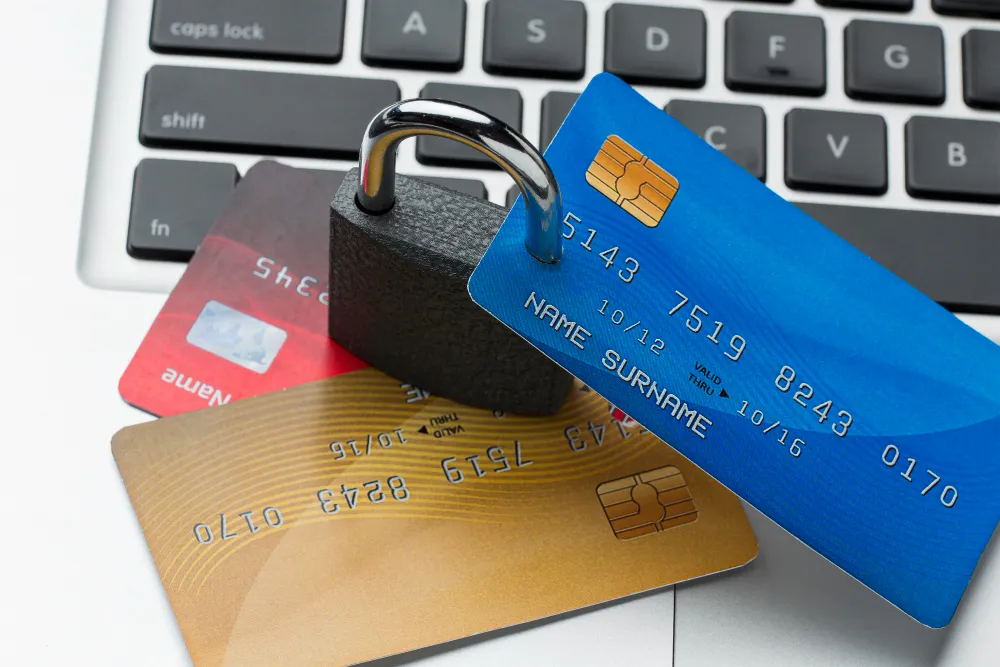Safeguarding Your Credit Card: Pro Advice
Leveraging a credit card can be fantastic, but it does carry certain dangers, particularly with numerous scams out there. Therefore, it's essential to understand how to safeguard yourself.
Credit cards serve as effective payment solutions, providing robust security features. To keep your finances safe and prevent any issues, it’s vital to implement preventive strategies and adhere to best security practices.

This article compiles expert advice to assist you in protecting your credit card from fraud, theft, and misuse.
Opt for Virtual Cards When Shopping Online
Online shopping is a common target for fraudsters. To safeguard yourself, consider using virtual cards, which act as temporary substitutes for your physical card.
Leading card issuers provide this feature, enabling you to create a one-time number for each transaction. This way, even if your information is compromised, that number won’t be usable again.
Turn On Transaction Notifications
Most banks and credit card companies allow you to set up immediate alerts for every transaction made with your card.
You can opt to receive alerts via SMS, email, or through your banking app whenever a purchase occurs. This lets you promptly spot any suspicious activity and act before it escalates.
Check Your Statements Regularly
Even with transaction alerts active, it’s essential to frequently review your statements. Fraudsters often make small, unauthorized charges, hoping they won’t be detected.
By keeping an eye on your transactions, you can challenge any suspicious charges and avert financial losses.
Exercise Caution with Public Wi-Fi
Refrain from making online purchases or logging into your bank account over public Wi-Fi networks, like those in cafes, airports, or hotels.
Such networks are prone to hacking attacks that can capture your financial information.
If you need to access sensitive data on a public network, utilize a VPN (Virtual Private Network) to secure your connection. It’s best to use your mobile data or a safe Wi-Fi network.
Enable Two-Factor Authentication (2FA)
Whenever possible, activate two-factor authentication (2FA) for your banking and credit card applications to enhance security.
This feature adds an extra security layer by requiring a second verification step, like a code sent via SMS or generated by an authentication app.
Opt for Digital Wallet Payments
Platforms like Apple Pay, Google Pay, and Samsung Pay enhance safety by substituting actual card numbers with encrypted tokens.
This means that even if a retailer suffers a data leak, your real card information remains protected.
Moreover, these digital wallets utilize biometric verification, like fingerprint or facial recognition, minimizing the risk of unauthorized access.
Watch Out for Phishing Scams
Phishing is a frequent method used by fraudsters to acquire credit card details.
These scams often involve deceptive emails or messages pretending to be from banks or reputable companies, urging you to click on dubious links and share personal info.
To keep yourself safe, always verify the sender’s legitimacy and avoid clicking on unfamiliar links. When in doubt, reach out to your financial institution directly.
Secure Your Physical Card
While digital security is crucial, don’t overlook the importance of keeping your physical credit card safe. Avoid leaving it unattended in public areas, and don’t carry unnecessary cards in your wallet.
If your card is lost or suspected stolen, promptly lock it using your bank’s app or contact the card issuer.
Steer Clear of Untrustworthy Machines
Scammers frequently attach devices known as “skimmers” to ATMs and payment terminals, capturing card information. Always inspect the card reader for signs of tampering or looseness before inserting your card.
Whenever possible, choose contactless payment methods to lower your exposure to risks. In crowded areas or street markets, cash can often be a safer and more practical option.
Establish Spending Limits and Temporary Locks
Numerous card providers let you set daily spending caps or temporarily freeze your card via their mobile app.
This option is especially handy if you don’t frequently use your card or desire added security against unwanted transactions.
Be Cautious of Offers That Sound Too Good
Always confirm a website’s legitimacy before finalizing a purchase by checking for security badges and ensuring the URL is valid.
Steer clear of entering payment information on unfamiliar sites or those lacking HTTPS.
By adhering to these expert guidelines, you can significantly diminish the chances of fraud and enjoy a safer credit card experience.





